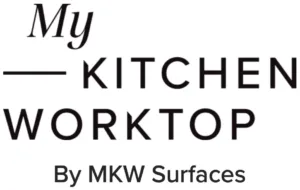Types of Kitchen Worktops: Which is Best for You?
When you decide to renovate your kitchen, one of the most important decisions is choosing the perfect worktop. This element not only defines the style, but also the functionality of your space. In this comprehensive guide, we’ll explore the main types of kitchen worktops so you can make an informed decision.
Types of kitchen worktops
We can group worktops into four broad categories according to material: natural stone, synthetic resins, porcelain and other materials. Each has its advantages, disadvantages and unique characteristics.
1. Natural Stone
Natural stone countertops are synonymous with elegance and durability. Among the most popular are:
Granite
Granite is a classic choice thanks to its resistance to heat, scratches and its variety of colours and patterns. Ideal for those looking for a worktop that will last a lifetime.
Advantages:
- High impact and heat resistance.
- Variety of unique designs, as each piece is different.
Disadvantages:
- Can be porous if not properly sealed.
Quartz (Silestone)
Although technically a manufactured material, quartz is included in this category because it is composed mostly of natural quartz. Brands such as Silestone are noted for offering modern colours and finishes.
Advantages:
- Non-porous and easy to maintain.
- Wide range of colours and textures.
Disadvantages:
- Less resistance to extreme heat.
Marble
Marble brings a touch of luxury and sophistication to any kitchen. However, it requires more care.
Advantages:
- Elegant and timeless aesthetics.
- Ideal for spaces where design is a priority.
Disadvantages:
- More susceptible to stains and scratches.
2. Synthetic Resins
Corian and Krion
These materials are made from acrylic resins mixed with minerals. They are ideal for modern, minimalist kitchens due to their homogeneous finish.
Advantages:
- Seamless surface without visible joints.
- Repairable in case of damage.
Disadvantages:
- Less heat resistance than natural stone.
3. Porcelain tiles
Porcelain tiles, such as Neolith or Dekton, are ultra-compact materials that stand out for their high resistance. They are perfect for kitchens with intensive use.
Advantages:
- Extreme resistance to knocks, scratches and heat.
- Very light, ideal for modern designs.
Disadvantages:
- Higher price.
4. Other Materials
Laminate Worktops (Formica)
Laminate worktops are an economical option that has improved in quality and design in recent years.
Advantages:
- Wide variety of designs that mimic other materials.
- Economical.
Disadvantages:
- Less durability against knocks and humidity.
Solid Wood
Wood brings warmth and naturalness to the kitchen. However, it requires more maintenance.
Advantages:
- Unique and sustainable.
- Can be easily restored by sanding and varnishing.
Disadvantages:
- Sensitive to water and scratches.
How to choose the ideal worktop for your kitchen?
The choice of worktop will depend on your priorities:
Aesthetics: If you are looking for an exclusive design, opt for marble or porcelain tiles.
Durability: Granite and quartz are perfect for kitchens in daily use.
Budget: Laminate worktops are an excellent option if you are looking for something economical.
Maintenance: For an easy-to-clean kitchen, choose quartz or porcelain.
Types of Kitchen Worktops: Which is Best for You?
Conclusion
Choosing the perfect worktop is a key decision in your kitchen renovation. Consider your needs, style and budget before deciding on a material. Still have doubts? Contact us for more information or request a no-obligation quote.








